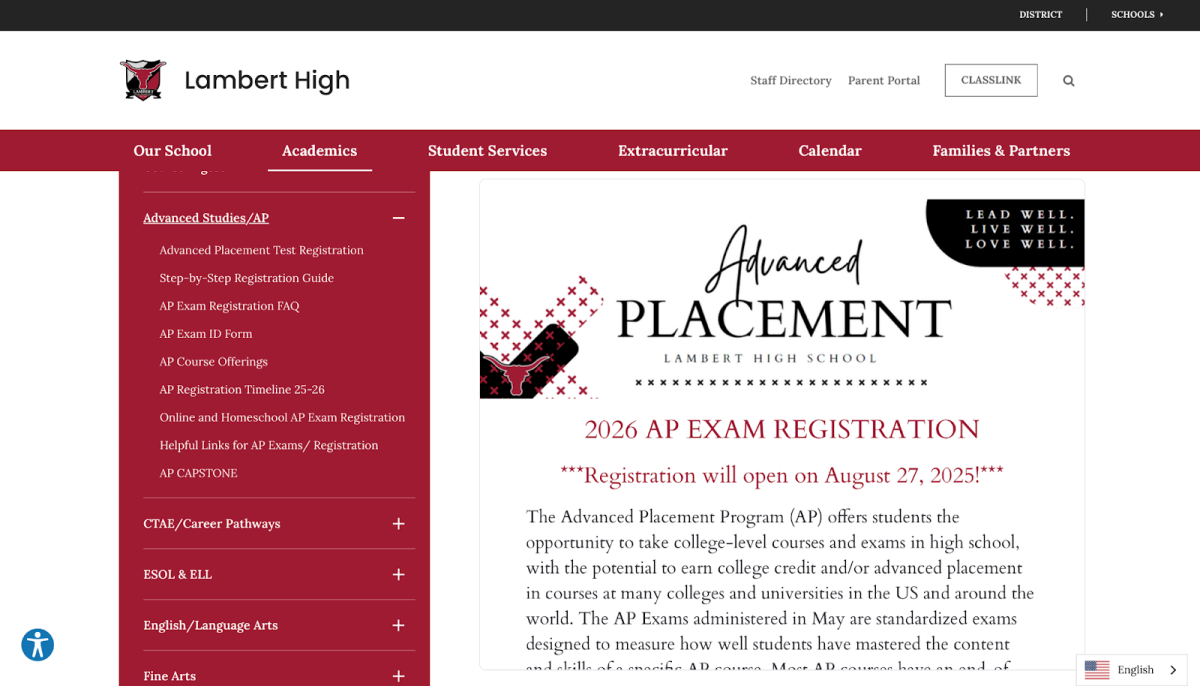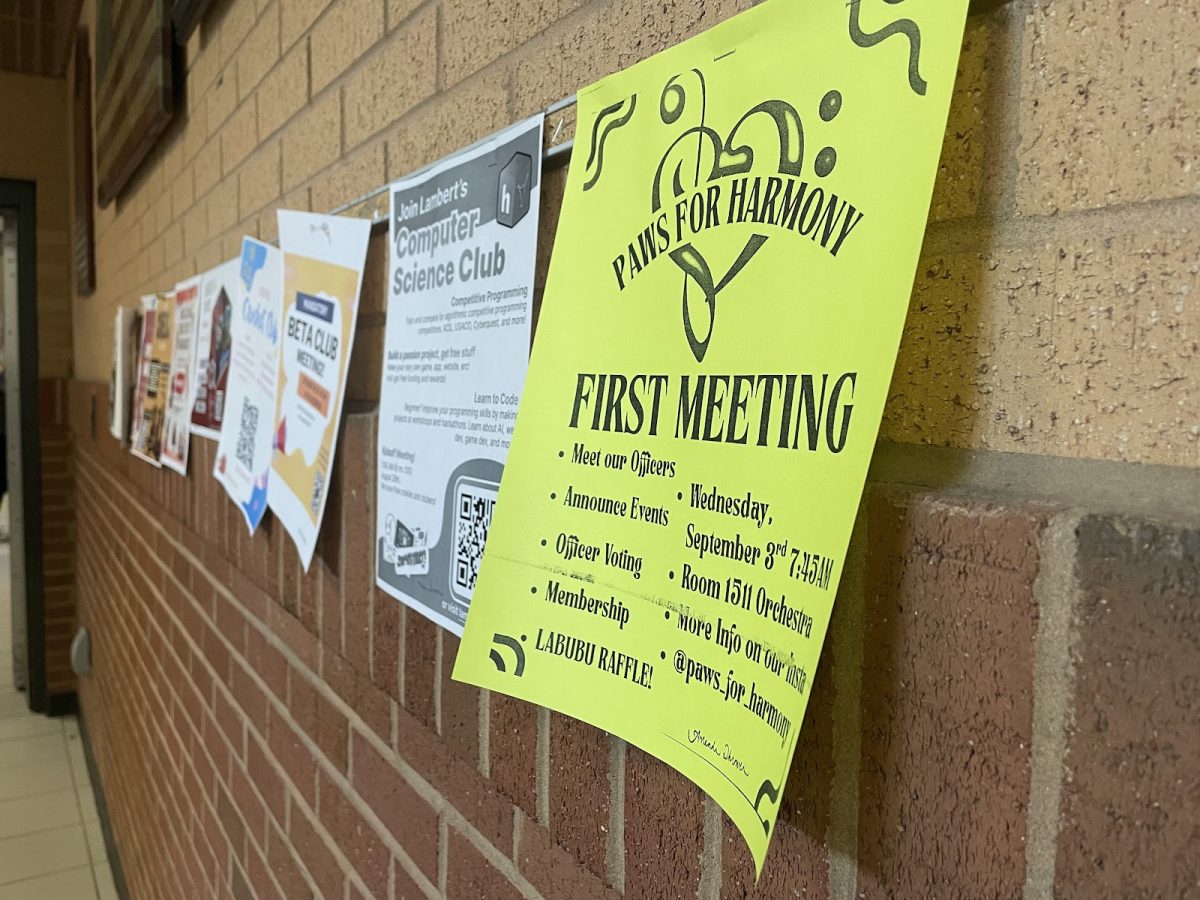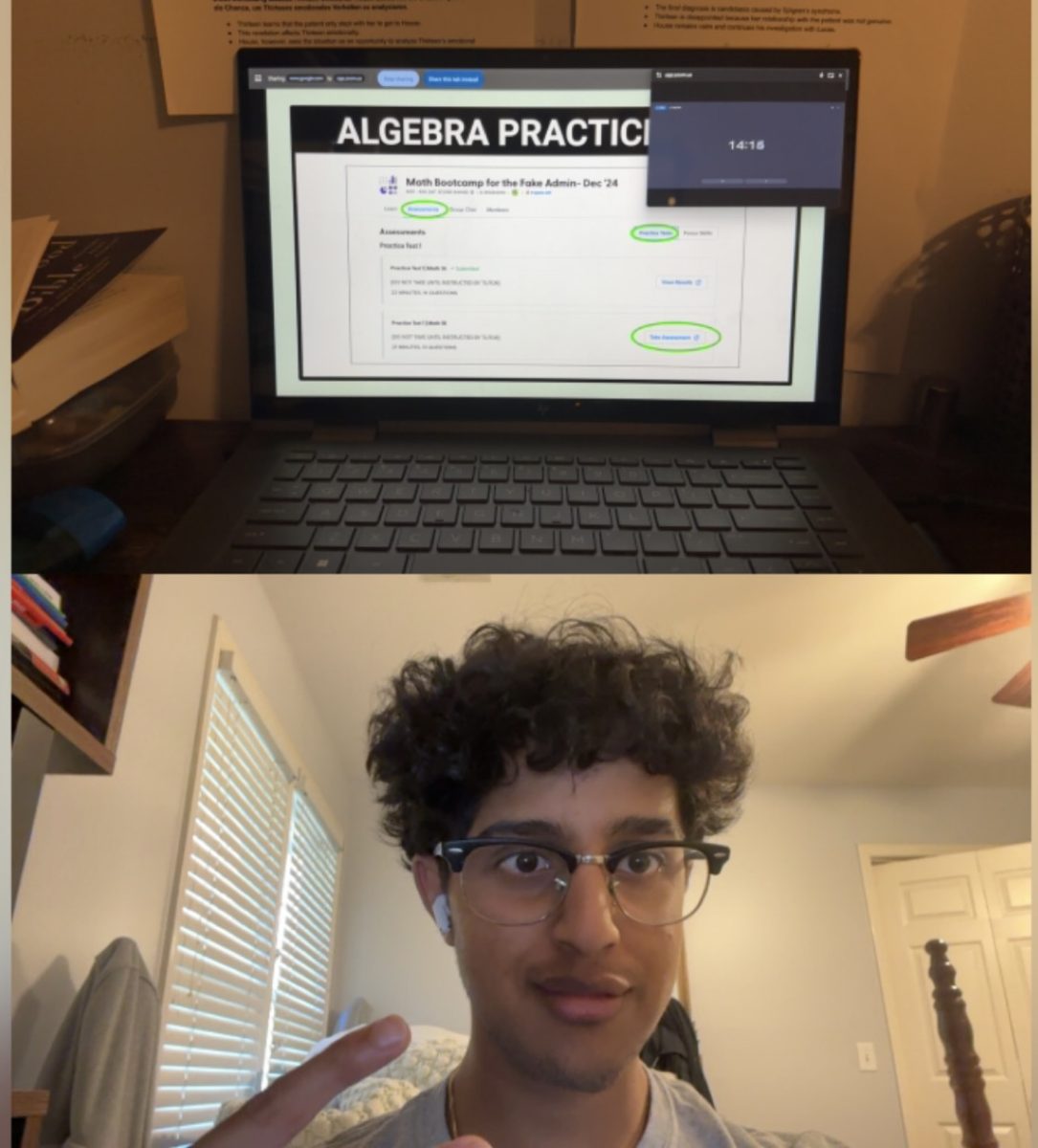It has been one month into the 2025-2026 school year and the year has been nothing short of different with the implementations of new policies. Many agree that the new Distraction Free Education and the school-issued Chromebook policies have the most significant impact on students.
In June 2025, the Forsyth County Board of Education passed the Distraction Free Education Policy. This policy prohibits the usage of cell phones and other personal electronic devices during the school day for all grade levels, with the exception of high schools permitting students to use their devices during lunch. Ms. Smoot, who teaches Honors 9th Literature, AP Literature, and Yearbook, notes that the policy has had a positive effect on her students.
“I have definitely seen an improvement in students having authentic interactions together,” she explained. “They’re having discussions, mostly on topics for what we’re talking about in class.”
For many teachers, this is a drastic change compared to past years as teachers saw cell phones becoming more integrated with their students’ lives, such as spending more free time on the screen rather than talking with each other.
While efforts for removing personal devices during the school day have proven to be effective to many teachers, the transition has been difficult for students, especially for sophomores and upperclassmen. Up until recently, students had used their cell phones to easily access school resources and updates through Canvas or Groupme. While many agree that the policy was a necessary addition, those in charge of clubs have found it to affect how they communicate with their members.
“It is harder to talk to people because we’ll be talking on Groupme, and then we have to…text back during lunch to answer a question,” junior Jonita Clarie John Bosco said.
Keeping members updated is essential for many clubs, but the policy will leave many looking for a better way to communicate, such as using bulletin boards to post updates.
Aside from the Distraction Free Education Policy, Lambert has also enacted a new Chromebook policy. With the restriction on personal devices, the school has required that each student receives a school-issued Chromebook. Because the school and teachers are able to keep track of what websites students are on, teachers find that it is easier to keep their students on track and ensure that everyone stays safe.
“Students can’t be as distracted on unapproved sites or things they are not supposed to be looking at during school hours,” Ms. Smoot said. “And using a school provided Chromebook is the best way they have to make sure students are being safe.”
Safety is an important priority for Forsyth County; however, students are finding it tough to adjust to the new rules.
For many, keeping a Chromebook is a hassle. From charging it everyday to carrying it everywhere, students have been finding the Chromebooks as an unnecessary addition to their school-lives. As John Bosco notes, using personal computers or keeping Chromebooks in the computer cage was more convenient for students.
“People used to just use a Chromebook from the classroom,” she explained. “It’s [Chromebooks] a big addition to carry around every single day. You need to charge it at night every single day, and especially if you already have another computer at home, it’s just another hassle to have.”
By having complete control over the student Chromebooks, the county can restrict websites that they believe are not safe to be opened. Many students have found that websites they typically use in class, like Youtube for watching videos their teachers recommended, are also being restricted, leading them to wonder whether the school-issued Chromebooks are a necessity.
With these new policies, it is clear Lambert and Forsyth County are taking a more proactive approach to decrease how much students rely on their personal devices. Though many may not agree with certain aspects of the policies, everyone is hoping that these new rules will leave a positive impact on the school environment.















